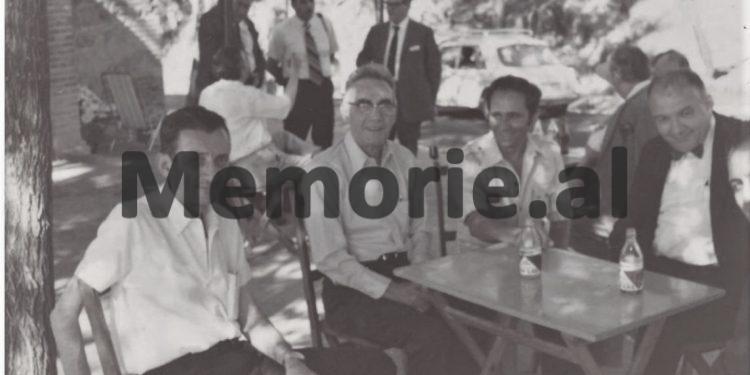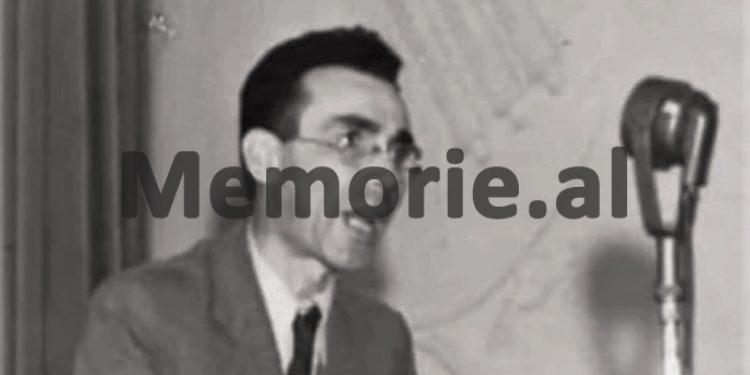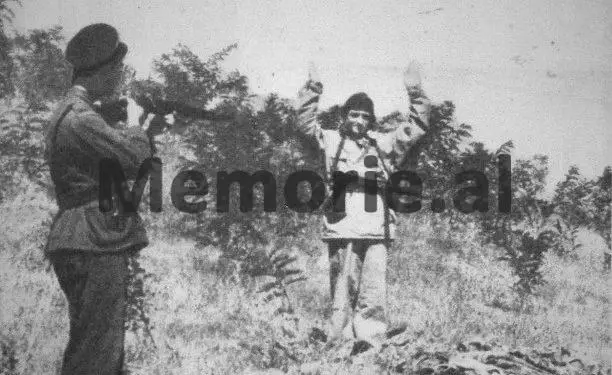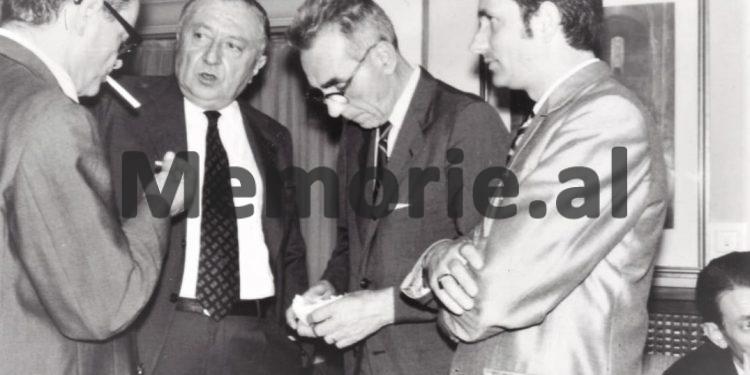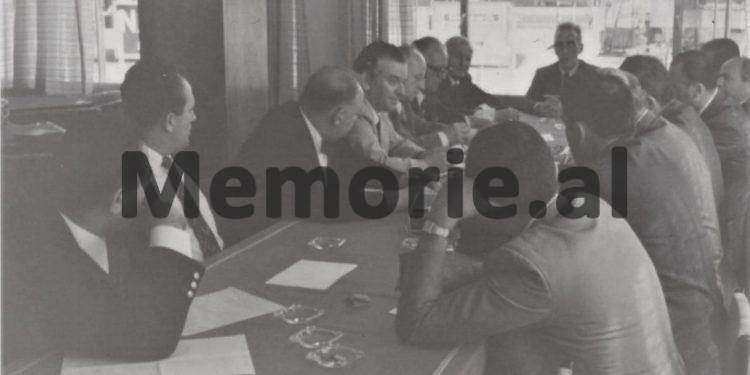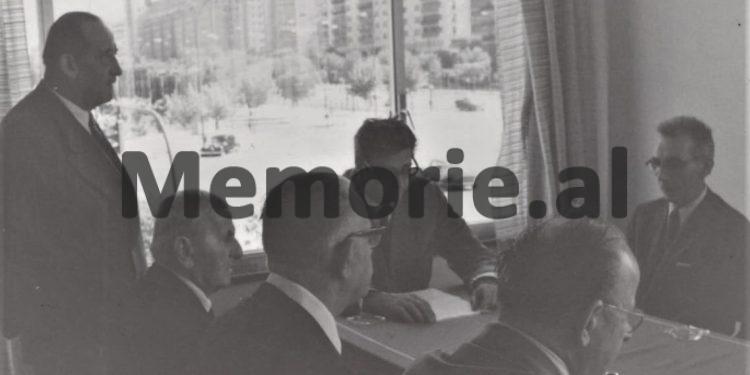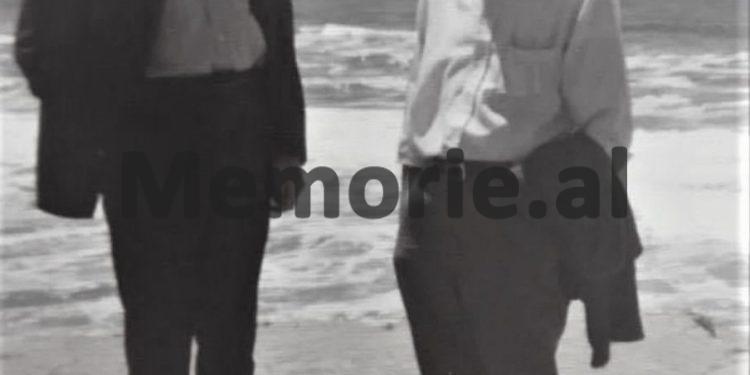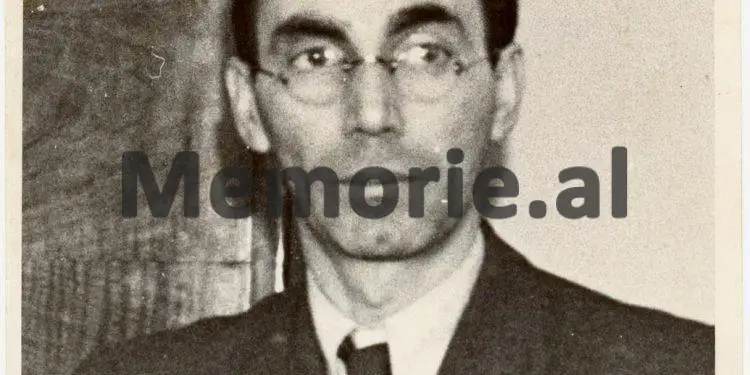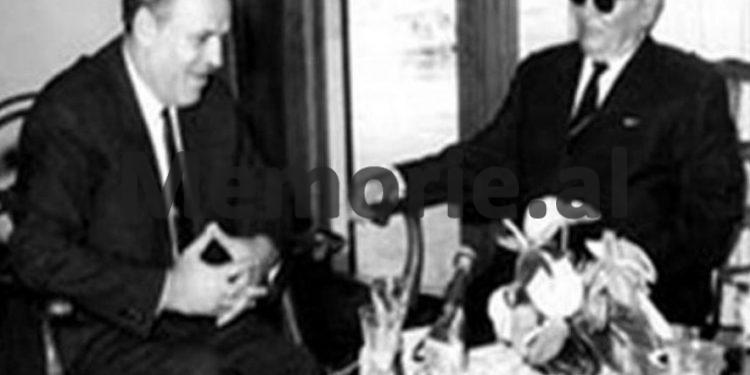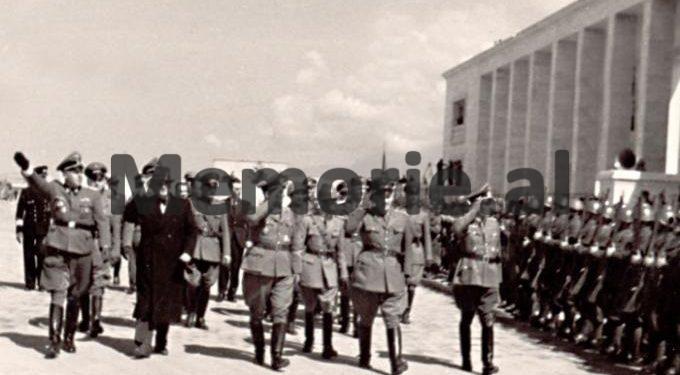By Idriz Lamaj
Part twelve
From the works of the apostles of ethnic Albania
Xhafer Deva
In light of his own letters and other diaspora revelations
Foreword
Memorie.al/ Probably like many others, I often browse letters with my friends and associates, who are no longer in this life. Browsing through them, for a moment unfolds memories that it seems to me that some of them can serve our history. Then, I return to the awareness of the current difficult situation in the ethnic homeland, caused by the quadruple of Albanian politics, I say to myself: “What can my memories of others or the letters of the people of dead? ”
Without being the ominous instigator of pessimism, thinking as always of a better future, I return to my obligations to my friends, and as an icy observer of time, without any claim of historical service, when I am given the opportunity of publication, write what I have in mind, always based on their writings and letters. This principle is also followed in this book about Xhafer Deva. I knew Xhafer Deva in person; we exchanged visits and had a strong correspondence.
I spent days off at his house and inherited all of Xhafer Deva’s correspondence with Rexhep Krasniqi, his closest friend, for more than 40 years. After many years, I talked on the phone with Mrs. Deva’s daughter and son-in-law. In the conversation going on, taking advantage of the old friendship, I asked about his letters and they informed me that it was all Qefali Hamdia, a friend of their family.
In June of last year (2001) I went to Kenosha, Wisconsin, a guest of Qefali Hamdia, to look at Xhafer Deva’s correspondence, which Mrs. Deva sent her years ago, when she, due to her advanced age, was closed his house to go to the house of his 5th daughter and son-in-law, Mrs. Burgl Dagmar and Rev. Dennis Logie.
After reading the bulk of the letters, in the languages I knew, I took with me more than a thousand pages of his correspondence, covering a period of over 30 years, 1945 – 1978. Xhafer Deva spoke and wrote seven – eight languages. His correspondence is: Albanian, English, German, Italian, French, Turkish and Serbian. Xhafer Deva’s letters and writings, with the exception of those in Old Turkish and Serbian in Cyrillic, are mostly typewritten, well-kept, and alphabetically arranged, with the persons he dealt with.
That includes his family letters. He carefully kept a copy of every letter he sent and every letter he received. Mrs. Oswalda Deva, daughter Burgl, son-in-law Dennis Logie and Mr. Qefali Hamdia with family, expressed his heartfelt thanks for the trust they gave me. With special gratitude I recall here the help given to me by my brothers – Captain Nue Gjomarkaj and Nikoll Gjomarkaj, in the preparation of one of the most important chapters of this book.
Kapidan Nou, in addition to making available the subject on Xhafer Deva’s relations with the ‘Independent National Bloc’ and sending paratroopers to Albania and Kosovo, reviewed with me each document of that period, and we formulated the text in the form of a conversation; while Nicholas, deciphered the letters, transcribed and translated from Italian, the unpublished materials to date, which were published in this chapter.
Continues from the last number
Xhafer Deva’s life and activity in exile
– Kosovo in the time of Ethnic Albania –
Xhafer Deva in the light of his own letters
Xhafer Deva’s relations with the ‘Independent National Bloc’ and their parachute missions in Albania and Kosovo
Alushi No. 455 – 43 – 1800 28/6/1950. “At the moment of landing, the pilot must be very careful. He must not be in a hurry, because I can see fires or lights outside the landing area. Fires and lights of village houses. Landing should not be done, but without “Our fires were one and the same.”
For the Kosovo Group no. 443 24/6/50. “The instructions continue. The people who will be thrown must be given food for at least five days. Everything is missing here; the people do not even have it for themselves. It is very difficult to find food even with payment. We pray that all our gourds and “Comrade Kosovars should be filled with enough. Send chocolates and jams. The material bundle parachute should be white so that it can be easily seen in the dark forest.”
No. 441 24/6/150. “The instructions continue. If there is a big mistake in throwing people, if they go too far away from the marked area, we should immediately connect in communication contact with each other, through the connection with Rome. You only need to notify the group leader and the quota number. The communication between us should definitely start on the same day from four o’clock, to continue every hour, until we bake with our Kosovar friends “.
No. 11 GR 18 (Alush) 23/6/1950. “We are waiting for people to land. Twenty-fifth date Gershor. “Twenty-two thirty – in the area they gave it.” – For the Kosovar Group – Riza Ali Osmani No. 424 Time 11:26 19/6/50. “We anticipate the landing of Kosovars in Fushë Saxha Putosi (Pylli Kethellë) Map – Perlati” No. 10 LI 23/6/50. “Do not make the mistake of throwing before the twenty-fifth date. The instructions in the next communication continue “.
For the Kosovar Group. Finally, the date is set for June 26 (1950) which is as heroic as it is fatal. Xhafer Deva goes to the military base to greet his group and give the final instructions. The head of the seven-member mission, appointed by Xhafer Deva, was Captain Riza Osmani, known by the nickname ‘Oskar’, and his deputy, Destan Berisha, nicknamed ‘Amedeo’.
The group consisted of Riza Osmani, Shaqir Kabashi, Hajredin Vuçitërni, Beqir Bajgora, Ahmet Kabashi, Musa Vuçitërni and Destan Berisha. With this group were also two paratroopers of the ‘Bloc’. Kosovars dressed in military uniform and armed with light automatic weapons, get on the plane and leave for Laje of Mirdita, where the landing would take place. Since Kole Çuni had announced on the radio, a clear night with hane light, the landing would take place between 11 and 12 o’clock at night.
The commander of the Kosovar group had received all the instructions orally, without any note letter, but ‘Nik’, through the radio, had received from Xhafer Deva these instructions for the Kosovar Group. Oscar Group Guidelines:
- The “Oscar” group is responsible for conducting an activity strictly within the boundaries of the intelligence service.
- The “Oscar” group is supposed to operate in the Mat area. For a passing time and considering the fact that two of his people, are not assigned to be part of the group until circumstances allow us to complete this, in which case they will be given random instructions.
- Until the point 2 prediction is realized, these definitive instructions are given to the “Oscar”:
a). Join Gjon Gjinaj’s group. Resp. Alushit. This seems to be reasonable after consulting between you and regarding the development of an activity in favor of our cause. Close cooperation should be the main goal, leaving the leadership to John or Alushi.
b). The Oscars, under his chairmanship, will appoint two or three members of his group to cross the northern border as soon as possible. This with the help and support of Gjoni and Nik (Kol Çuni) in the direction of the Gjakova Highlands – where he will get in touch with Tahir Hoxha and with his help should cross the border as soon as possible.
c). Gold, divided into three parts, resp. Alushi, Gjoni and Nikit, will be handed over by ‘Oscar’, in the presence of two members of their group.
d). Special instructions for Alushi, Gjoni and Niku, in case of any enemy intervention. If all three of you are under pressure from someone, immediately notify ‘Oscar’, as he is in charge of giving you urgent communication figures. Only he knows these. ‘Oscar’ instructions for immediate action. This information should be collected:
- The situation in Kosovo, revealing the objective of the Yugoslav authorities regarding Albania.
- What are the real forces of Albanian emigration in the Yugoslav territory, i.e., in Kosovo. Number, organization, leaders, treatments of the Yugoslav authorities. The names of those who enjoy the trust of the Yugoslav authorities should be especially mentioned of those who have fallen or are falling under their influence.
- To the extent that Kosovo Albanians like or dislike the purpose of Yugoslavia, in terms of its intervention in Albania. List the people who are for or against.
- Everything you can to understand about the activity of the Yugoslav Intelligence Service in the Albanian territories, on both sides of the border. I restrict information exclusively in Albania.
- What is the military situation in Kosovo? List garrisons: forces, types of weapons (preferably) commanding officers, airports and all information about a military activity in the near future.
- Possibly an overview of the economic situation in Kosovo, including the mining activity of Trepça, Obiliq, Strecka, Allatin and Zletova in Macedonia. The Albanian version of this text of instructions is difficult to read because Deva’s handwriting, fine and pencil, is almost erased. Here we have brought the translation of the English version, which, like other reports of this nature, was also done in English for the US Office of Foreign Affairs.
Deva’s instructions given to his paratrooper group are detailed and comprehensive. He and his American colleague, Roger, are looking for accurate data, even from the deepest villages of the country, especially in the Dukagjini Plain. For example, which families had been harmed recently, how much the influence of Yugoslav espionage had penetrated these families, where they could be relied on in the event of a landing, where people could be recruited for war, if landed by a force of significant to explode the border from the Gjakova Highlands, etc. etc.
Now back to the fatal landing of the Kosovo Group. At 23:05 on June 26, 1950, the parachuting begins. Before falling to the ground, the bloody battle begins between the forces of Alush Leshanak, who were about eight people waiting, and the police forces that had surrounded the place. There, the gun battle lasts close to two hours and Riza Osmani and Nue Frisku, are killed during the landing, opening fire from the air. In the ongoing match, prof. Alush Leshanaku. Gjon Gjinaj was also wounded there, who with his own forces had put in a strong siege the police forces, which had surrounded Alushi with his group.
The Kosovar paratroopers are taken out of the siege and withdrawn together with the wounded from the combat territory. People, who happened in that match, talk in letters to each other, about the heroic resistance of the forces of Gjon Gjinaj and Alush Leshanaku. As per subsequent radio reports, nine people were killed and wounded by communist police forces. After spending two months in the mountains of Mirdita, the Kosovar paratroopers set off for the Gjakova Mountains. The leader of the group, ‘Amedeo’ (Destan Berisha), informs Deva from the field, via a receiving radio.
Amedeo. Nr. 22 12/9/1950. “We are on a journey. Tonight we crossed the Drini. We are in the Gjakova Mountains. In Tropoja. After occupying the center, I will let you know.” – Amedeo for Amedeo. 12/9/50 “I arrived from a long journey. Your activity in the area where you are is one of our services for the national cause. In close cooperation with Tahir Hoxha, accurate and extensive information on military movements on both sides of the border is expected. Stay where you are. Heartfelt greetings to Tahir Hoxha. ” – Xhaferi.
The Deva parachutists did not have the right terrain in Kosovo like those of the ‘Independent National Bloc’ in Mirdita and Northern Albania. The ‘block’ had strong squads in the mountains and paratroopers immediately joined them. They had also created trust in the population of the country, where the gangs operated and found shelter and protection. Deva’s missionaries, who can be freely called death volunteers, were escorted by the Mirditore detachments to northern Albania and then everything depended on their family contacts inside Kosovo, which disturbed Xhafer Deva the most.
In Kosovo there were no more troops operating in the mountains, so Xhafer Deva had to prepare Kosovar paratroopers in the traditional way; in support of housing to relatives or personal friends. For three months, after hours of military training, Xhafer Deva spent hours with his paratrooper group, explaining in detail the topographic maps and talking about their family ties in Kosovo, and who they could approach for housing. As after Deva’s correspondence with Shaqir Kabashi and Destan Berisha, two of the paratroopers, Hajredin Vuititerni, had made a fatal act from the beginning, when they entered Kosovo.
After several months of sheltering in Kosovo, instead of waiting for him to move, he contacted Sheh Hasani, who told him he could save his life if he worked for UDB. Deva had advised her people in time that they should stay away from Sheh Hasani and Hysen Prushi, because they had become the nursery of UDB. Tahir Hoxha of Gashi, had informed Deva in time, since mid-1949, that at least in the districts of the northeastern border, between Kosovo and Albania, there was no Kosovar platoon and that his platoon had been reduced to seven.
Tahir Hoxha had been in contact with Xhafer Deva since mid-1949, through Pal Bib Mirakaj, who was the liaison of the Mirdita and Puka squad group, with Tahir’s squad in the Gjakova Highlands. As after Deva’s letters, Sheh Hasani had met Hajredin before informing the UDB and had told him that in order to convince the UDB, he had to claim that he had killed Captain Riza Osmani and taken them the gold he had with him for his group and the ‘Independent National Bloc’ group. After a few months, Hajredini returns with a UDB mission to Italy, to kill Xhafer Deva and a Croatian priest, a group of Ustashas, whom UDB considered dangerous, whose name is not mentioned in Deva’s letters.
The UDB had provided Hajredin with a passport and shot him in Trieste, Italy. Upon learning that Hajredin was in Trieste, Xhafer Deva, accompanied by an American officer, went to Trieste, took Hajredin out of the police prison, and brought him to Rome. Hajredin tells Deva in detail UDB’s plans and the person he was supposed to meet at the Yugoslav Embassy in Rome, who, according to Deva’s letters, is a person with the surname Popovic, a close cousin of Miladin Popovic, or a brother his.
A few years later (September 15, 1962) Deva wrote a long letter to Destan Berisha in which this paragraph about Hajredin is also found: “I have not seen anyone more stupid than Hajredin. He claims in UDB that he killed Rizan, while Rizaja was killed in Albania, by the police forces, and for whose murder you and many others are witnesses. He tells them that he received the gold, and the gold was handed over to Kol Çuni, who immediately informed the center in Rome that the money and other material had been handed over in order. He became a friend of Sheh Hasani, when we were informed that Sheh Hasani and many others were in the service of UDB. Memorie.al




